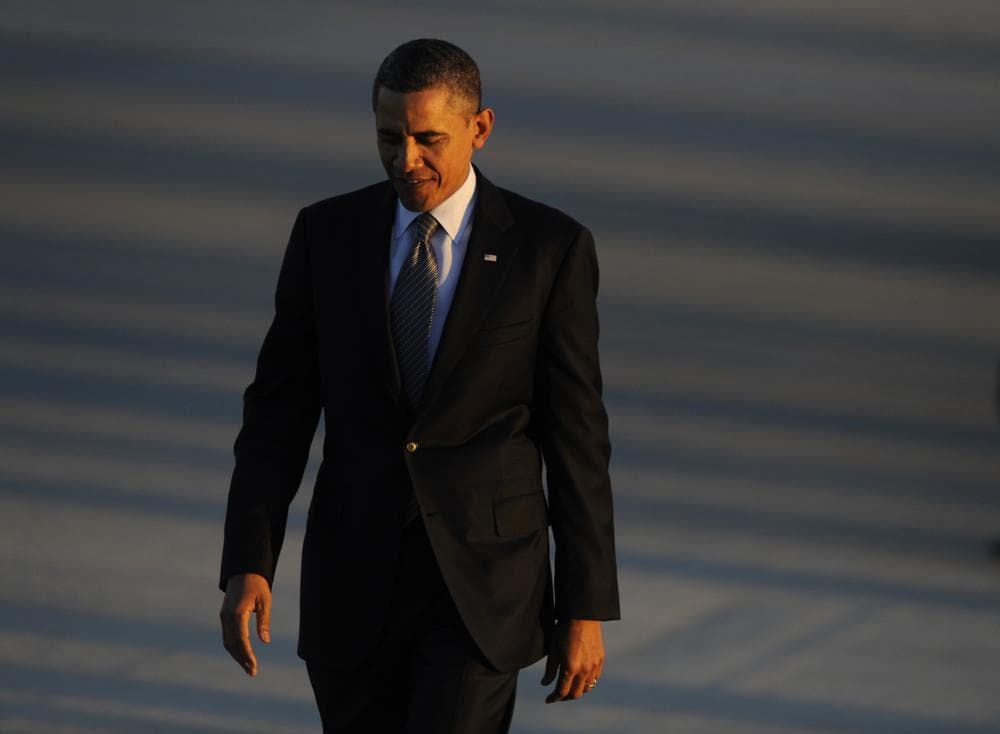Advertisement
Is Obama A Chess Master Or Pawn?
Resume
[sidebar title="" width="200" align="right"]Facebook: Do you think the president is a masterful strategist or a pawn? [/sidebar]
Is President Barack Obama a chess master or pawn? That's the provocative question on the cover of the new Atlantic Magazine.
Inside, writer James Fallows elaborates, asking whether President Obama a skillful political player who always sees several moves ahead of his opponents-- or whether he is out of his depth, overwhelmed by events and at the mercy of a second rate staff and Republicans.
Fallows spoke with a number of current and past members of the Obama administration, as well as current and past members of the Senators and House to get a range of opinions.
The Chess Master
Fallows points to a number of reasons the president could be seen as a chess master:
- containing what could have been an open-ended commitment in Iraq;
- walking a tightrope in Afghanistan: avoiding criticism from the military for doing too little while also preparing a path for withdrawal;
- managing the troubled relationship with Pakistan—including in the aftermath of the Osama bin Laden raid;
- encouraging the Arab Spring events in general, without getting mired in the details of any of them;
- supporting the Europeans during their debt crisis, while keeping the United States somewhat insulated from it; and
- putting U.S. relations with China on a better footing than in many years, a task that has to be among the very most important for any president of the early 21st century.
The Pawn
Fallows points to reasons why the president could be seen as a pawn, he says the criticism he has heard fits broadly into four categories:
- Inexperience: that Obama’s own lack of executive experience left him reliant on the instincts and institutional memory of others—and since so many of his appointees came from the Clinton administration, he was also vulnerable to ’90s-vintage groupthink among them. This was particularly true, as we’ll see, during his response to the economic crisis in his first year in office, and then during his showdowns with Congress after Tea Party–inspired Republicans regained control of the House.
- Coldness: that what looks serene in public can seem distant and aloof in his private dealings and negotiations.
- Complacency about talent: that the disciplined excellence he demands of himself—in physical fitness and appearance, in literary polish of his speeches, in unvarying control of his mood and public presentation—has not extended to demands for a comparably excellent supporting staff.
- Symbolic mismatch: that Obama’s personal achievement in rising to the presidency betokened, for much of the electorate, far more sweeping ambitions for political change than Obama the incrementalist operator ever had in mind.
Guest:
- James Fallows, journalist and veteran presidential watcher
This segment aired on February 15, 2012.